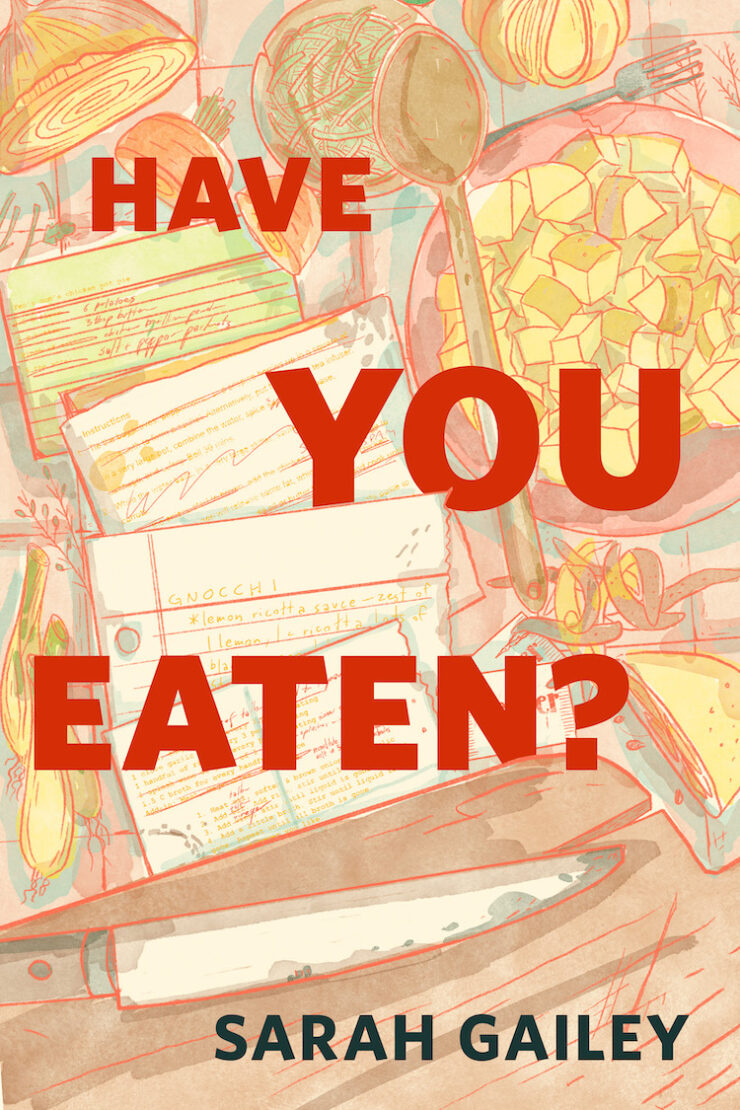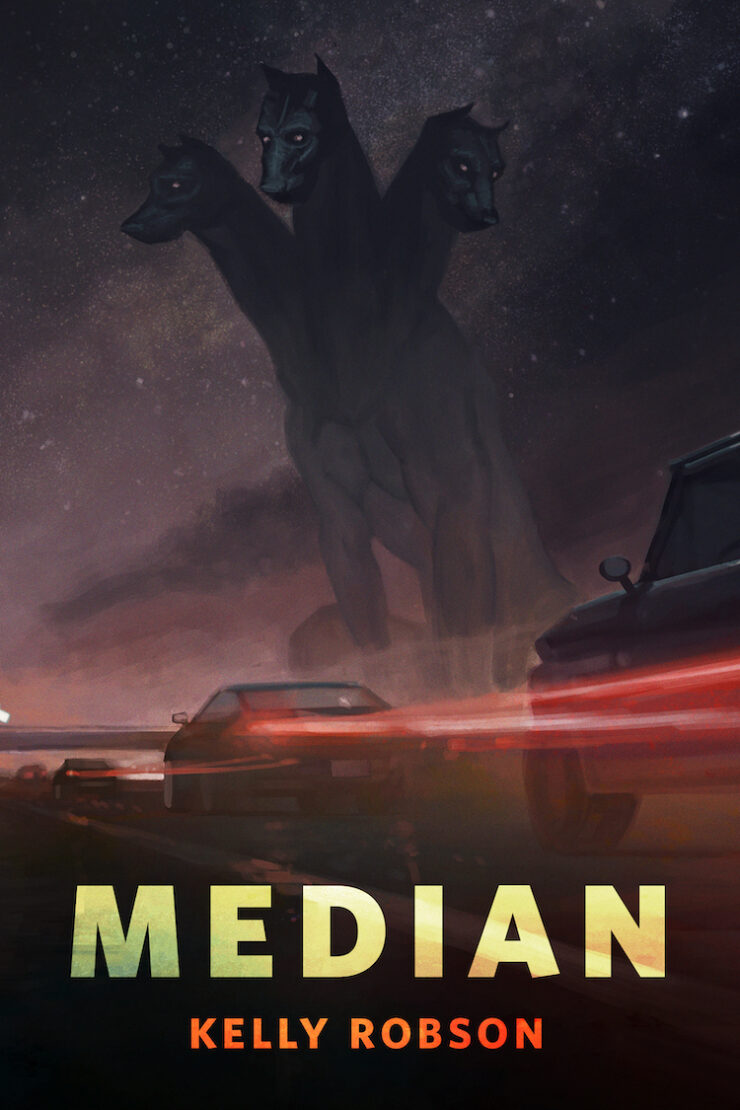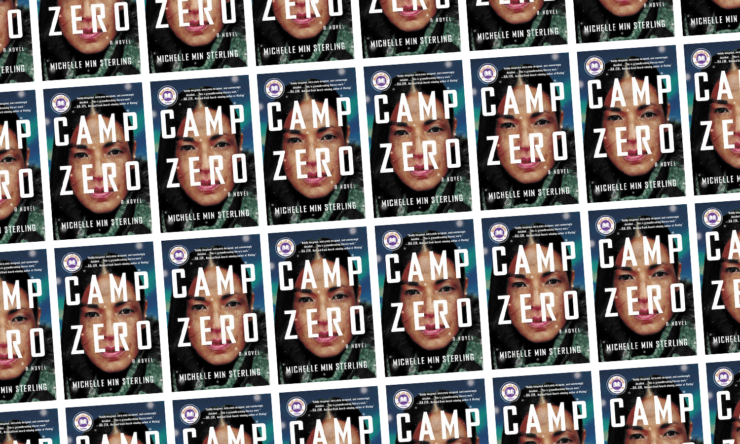What’s in a name? For the characters in Michelle Min Sterling’s novel Camp Zero, the answer to that could be the difference between life and death. Much of the novel follows two characters whose lives have taken them to a remote camp in northern Canada. One is Grant, a teacher who has made his way there after a schism with his wealthy family. The other is Rose, a sex worker (or “Bloom”) at the camp’s bordello who has a secret agenda.
Rose isn’t her real name—all of the women in her profession there use aliases. But in this novel, she’s far from alone in her use of an assumed name—and before too long, it’s clear that Grant, rather than Rose, is the exception to the rule. That’s one of several ways in which Sterling uses a subtle variety of worldbuilding to illustrate some of Camp Zero’s thematic arguments.
Camp Zero is set a few decades into the future, and it’s a world in which climate change has had devastating effects on coastal communities around the world. She’d previously lived and worked on the Floating City, a techno-libertarian offshore city which rose up as an alternative method of living—at least for the wealthiest of the wealthy. The ostensible purpose of the titular Camp Zero is an alternative method of living in closer harmony with nature, under the direction of an architect named Meyer.
Buy the Book
Camp Zero
Rose has been sent there by a man named Damien to carry out a mysterious task that has to do with Meyer’s work, but she isn’t the only resident of Camp Zero with a hidden agenda. Grant’s period flashbacks to his time in college provide some details about the wider world, as does a parallel plotline about a group of female scientists that seems to be taking place at a different time than Rose and Grant’s sections. How that subplot links up with the others is one of the book’s big questions, as is the question of what Rose’s agenda actually is
Some of the smaller details of this near-future world feel especially organic, from the ways in which various groups address societies that have outlawed the use of oil and gas to the way that gold takes on a heightened status as currency again. Others feel more superfluous; early in the novel, Rose has her Flick, a neural implant, disabled—but despite being relatively ubiquitous in this novel’s futuristic setting, they fade into the background relatively quickly.
Periodically, Sterling returns to the Flick and addresses their effect on society, on concepts of awareness, and on how they could transform the experience of memory. But this isn’t the primary aspect of Camp Zero, and having read entire novels that explore the ramifications of such technology—Sarah Pinsker’s We Are Satellites comes to mind—the inclusion of this element here feels slightly undercooked.
Most of the residents of Camp Zero are identified by their work rather than their names—the Foreman, the Barber, and so on. And the cumulative effect of so many characters being known by either obviously false names or being defined by the work that they do ends up being considerable. Camp Zero is a novel that abounds with alienation, and the gulf between many of its characters and their names helps to illustrate this. Once you start to notice which characters are known by aliases or job titles and which are known by their preferred names, you start to see a pattern emerging—and it’s one of the subtler ways in which Sterling speaks volumes about the power dynamic of this near-future society.
Other aspects of this novel don’t come into focus quite as well. By the end of the novel, Sterling reveals the full scope of Damien’s plan and why he has asked Rose to keep an eye on Meyer. But that nefarious plan also seems wildly overcomplicated. That said, it does give the impression of a bunch of people trying to make a living getting caught up in an epically petty contest between two insecure men, which—sadly—resonates a bit more strongly in 2023.
Some aspects of Camp Zero can frustrate, but the overall effect of this taut near-future thriller is positive. And there’s one more subtle maneuver that Sterling carries out, featuring a few flashbacks in this narrative that seem to be set right around the time someone might be reading the novel right now. There’s a moment when the near-future of the novel connects to the present moment, and it’s there in that moment that this feels less like a cautionary tale and more like a window into what’s to come.
Camp Zero is published by Atria Books.
 Tobias Carroll is the managing editor of Vol.1 Brooklyn. He is the author of the short story collection Transitory (Civil Coping Mechanisms) and the novel Reel (Rare Bird Books).
Tobias Carroll is the managing editor of Vol.1 Brooklyn. He is the author of the short story collection Transitory (Civil Coping Mechanisms) and the novel Reel (Rare Bird Books).










